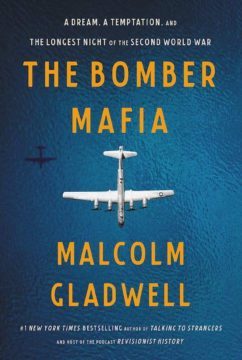David Fedman and Cary Karacas in the Los Angeles Review of Books:
 THERE’S A RICH IRONY that Malcolm Gladwell’s new book is spun off from episodes of his Revisionist History podcast. Ostensibly a meditation on the morality of bombing civilians during World War II, The Bomber Mafia is anything but revisionist. It’s indeed hard to imagine a more conventional account of the air war against Japan. In the questions it asks, the sources it uses, and the voices it amplifies, The Bomber Mafia offers an account virtually indistinguishable from the consensus position on the firebombings of urban Japan. It takes some of the most oft-repeated fallacies about the shift to area bombing and wraps them in a shiny new package.
THERE’S A RICH IRONY that Malcolm Gladwell’s new book is spun off from episodes of his Revisionist History podcast. Ostensibly a meditation on the morality of bombing civilians during World War II, The Bomber Mafia is anything but revisionist. It’s indeed hard to imagine a more conventional account of the air war against Japan. In the questions it asks, the sources it uses, and the voices it amplifies, The Bomber Mafia offers an account virtually indistinguishable from the consensus position on the firebombings of urban Japan. It takes some of the most oft-repeated fallacies about the shift to area bombing and wraps them in a shiny new package.
The Bomber Mafia turns on a dramatic day in January 1945, when two protagonists “[square] off in the jungles of Guam.” Waiting on the tarmac as a B-29 bomber approaches for landing is Haywood Hansell, a career soldier unshakable in his faith in precision bombing, a man unwilling to bend his morals to the pressures of war. Stepping off the plane moments later is Curtis LeMay, his replacement. A ruthless pragmatist and brilliant tactician, LeMay has arrived to achieve what Hansell could not: bring the war in the Pacific to an end, even if it means destroying by fire every Japanese city, large and small.
More here.
